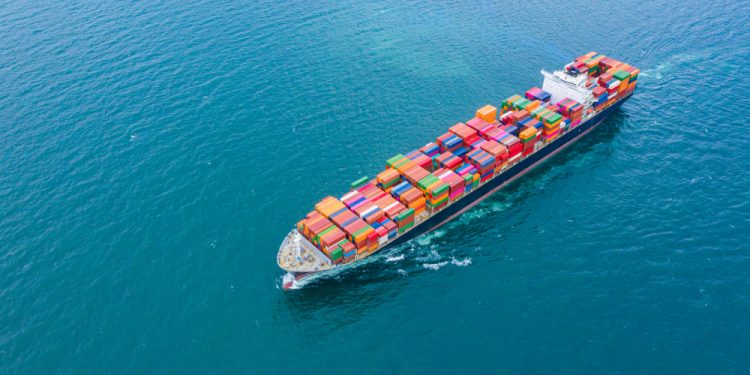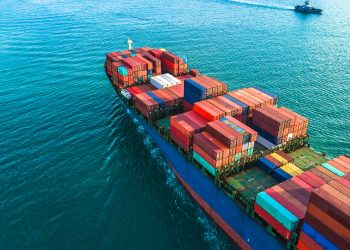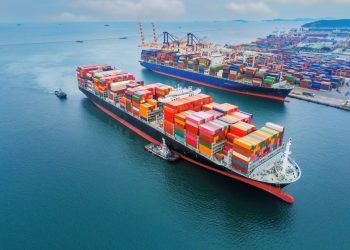The European Community Shipowners’ Associations (ECSA) has presented policy priorities for the next five years, focusing on four pillars which are based on ESG (Environmental, Social and Governance) principles.
According to ECSA, European shipping, representing 39.5% of the world fleet, enables Europe to play a leading role in the international supply chains. To ensure European shipping continues to play a strategic role for the security of Europe, the ECSA Priorities 2024-2029 put forward policy recommendations along four key pillars.
The ECSA Priorities 2024-2029 four pillars are:
- Climate and energy transition
- People-centred green and digital transition
- Ship Finance and Competitiveness
- Trade
Shipping has been a European success story amid growing geopolitical instability. It has been a cornerstone of the economic security of our continent, delivering the energy we need and supporting the exports of our goods. Shipping has enabled Europe to remain a leader in the international supply chains.
..said Sotiris Raptis, ECSA’s Secretary General.
Sotiris Raptis added that at the same time, the uptake of clean fuels and technologies has emerged as the new battlefield of international competition. The EU has set up the most ambitious climate targets internationally laying out a pathway to net zero by 2050. However, without proper access to finance and without immense public investments, the energy transition and the competitiveness of the industry are at stake.
To meet the challenge of the digital transition and to match the uptake of clean fuels, we need to address the skills gap. Up to 800,000 seafarers will have to be upskilled or reskilled internationally by the mid-2030s.
… said the Secretary General
#1 Climate and energy transition
To achieve this, increased emphasis should be put on making affordable clean and safe fuels available and on developing the capacity, access to and infrastructure for green maritime fuels. Requirements on fuel suppliers should be included in EU legislation to ensure that enough clean and safe fuels are produced for the maritime sector. The implementation of the legislation of the ‘Fit for 55’ climate package is key to achieving the 2030 climate goals and kickstarting the decarbonisation of the shipping sector, and should be the priority before opening the discussion on new climate targets.
ECSA policy recommendations
To foster the production and availability of affordable low-and zero carbon fuels for the shipping sector, a mandate on fuel suppliers to produce these fuels
should be introduced in future revision of the Fit for 55 Package, such as the FuelEU maritime regulation and the Renewable Energy Directive. As a prerequisite
to the decarbonisation of the shipping sector, port infrastructures and energy hubs should be developed.
The revenues of the EU ETS should be spent on energy transition-related activities to decarbonise the shipping sector at the EU and the Members States’ levels. The dedicated envelope for the maritime sector under the Innovation fund should be used as soon as possible to foster the decarbonisation of the sector and bridge the price gap between conventional and low-and zero carbon shipping fuels and be prolonged after 2030. Administrative burden should be limited to ensure that SMEs, which are the backbone of the shipping sector, can apply to the calls of the Innovation Fund.
#2 People-centred green and digital transition
Seafarers play a crucial role in the global economy, facilitating international trade, and connecting nations across the seas. They are the backbone of the maritime transport industry.
Shipping is undergoing an existential transformation linked to green and digital technology. Future clean fuel technologies, such as hydrogen, ammonia, batteries, and biofuels, will require new skills, education, and operational training for seafarers. Technologically advanced ships will also require new digital skills.
Green and digital technologies are developing fast.
800,000 seafarers will have to be upskilled/reskilled by the mid-2030s, according to recent studies.
..ECSA stated.
ECSA policy recommendations
- Seafarers’ working conditions: The EU should firmly support the international framework such as UNCLOS and MLC as a matter of principle the only way to regulate seafarers’ conditions of employment through the flag state. This is key to ensure the smooth functioning of the shipping industry and the global supply chain and maintain the strategic importance of European shipping.
- People-centred transitions: The EU should continue to enhance and promote reskilling and upskilling of seafarers, in particular in view of the ongoing review and revision of the STCW Convention which is fundamental to succeed with the green and digital transformation of shipping. Building skills for new vessel technology, fuel types, and safety regulations should remain priority.
- Diversity and Inclusion: the EU should enhance the collaboration between industry leaders, educational institutions, and organisations dedicated to diversity and gender equality and to foster an environment that promotes the growth and success of women and underrepresented groups in shipping.
#3 Ship Finance and Competitiveness
To maintain and advance its competitive edge vis-à-vis its global competitors, European shipping needs access to competitive financing in Europe. Adequate access to financing is necessary to keep shipping companies in Europe and to enhance our continent’s economic security.
Having strong ship financing in Europe will benefit the European maritime sector and economy at large by enabling the development of innovative and sustainable solutions for shipping in Europe. Financing in the European economy is heavily dependent on banking finance.
ECSA policy recommendations
- Bank financing and capital markets: The prudential regulation and risk weight requirements should be reviewed and designed considering the distinctive features of shipping and needs, to enable the banking sector to finance the sustainability of the sector. European ship financing opportunities should be enhanced through a diversity of financing and funding tools involving capital markets and private investors to enable better risk sharing of innovative and transitional projects.
- Urgent funding needs: The EU should ensure that requirements by the ETS Innovation Fund and the EIB are fit for the immediate funding needs of innovative and transitional projects. The scale of funding should be adapted to enable SMEs to benefit from funding. The definition of European
added value should be finetuned so the international character and strategic role of shipping is better recognised. - Taxonomy of sustainable economic activities: Definitions of sustainable projects based on ESG should be designed to enhance the financing of the energy transition and climate ambition. The technical screening criteria under taxonomy should be reviewed to become fit for purpose.
#4 Trade
The EU benefits substantially from free and open access to the international markets. European shipping representing almost 40% of the global fleet makes the EU an international leader in the global supply chains and enhances European security.
ECSA policy recommendations
- Maintaining open trade: Balance must be maintained between the need for the EU to support its strategic sectors and the need to ensure open access to
markets, avoiding a protectionist approach. - Enhancing secure trade: In its role as global maritime security provider, the EU should continue its work to ensure the protection of international shipping trade lanes. In particular, the EU should prioritise the coordination of military presence, notably around the Horn of Africa and the Gulf of Guinea.
- Investing in international trade partnerships: The EU should continue to pursue Free Trade Agreements with third countries, including provisions on maritime services and removal of existing trade barriers.Market access as regards specific shipping segments, such as offshore services, should be promoted. To ensure that EU trade agreements truly deliver for EU shipping, enforcement of such agreements, from market access to subsidy control, is necessary.


































































